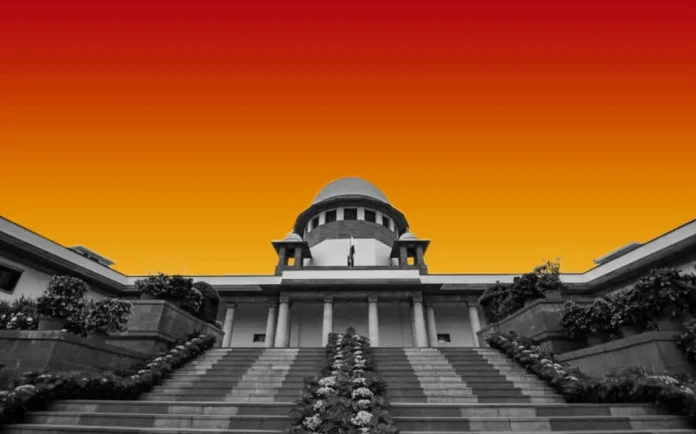Chief Justice of India (CJI) BR Gavai on Wednesday recused himself from hearing the petition filed by Allahabad High Court judge Justice Yashwant Varma, challenging the in-house committee report that indicted him over the alleged recovery of a huge sum of unaccounted cash from his official residence in Delhi.
Senior Advocate Kapil Sibal mentioned the matter before the Bench of CJI Gavai, Justice K Vinod Chandran and Justice Joymalya Bagchi, seeking urgent listing on the grounds that the petition raised some constitutional issues.
CJI Gavai recused himself from hearing the matter, saying that he was part of the committee, probably referring to his involvement in the process of initiating in-house action against Justice Varma during the tenure of former CJI Sanjiv Khanna.
Apart from Sibal, Senior Advocates Mukul Rohatgi, Rakesh Dwivedi, Sidharth Luthra and Siddharth Aggarwal, along with Advocates George Pothan Poothicote and Manisha Singh, appeared for Justice Varma. They urged the Apex Court to constitute a Bench as soon as possible for hearing of the matter.
The Bench said it would take a call and constitute a Bench for hearing the matter.
Earlier this month, Justice Varma moved the Apex Court against his indictment. The move followed the recent decision of the Union government to bring an impeachment motion in the Parliament for his removal from office.
The petitioner requested the Apex Court to declare as unconstitutional and ultra vires, the recommendation made by former CJI Sanjiv Khanna for his removal as a High Court judge.
Assailing the former CJI’s letter to the President and the Prime Minister recommending his removal, the judge claimed this bypassed constitutional procedure and legislative safeguards under Articles 124 and 218.
He further challenged the in-house procedure on inquiry into complaints against judges on the grounds that it created an extra-constitutional and parallel mechanism, derogating from the law that exclusively vested the power for removal of High Court judges in the Parliament.Court calendarsJudge consultation services
The In-House procedure did not have the safeguards as provided under the Judges (Inquiry) Act, 1968. Since the procedure was administrative in nature and not grounded in statute or the Constitution, it could not be used to recommend removal from constitutional office, noted Justice Varma.
He further contended that the panel initiated probe against him without any formal complaint, based only on presumptions and unverified information. This was contrary to the very design and objective of the in-house procedure, he added.Judge consultation services
The High Court judge claimed that the Supreme Court’s press release, issued on March 22, 2025, publicly disclosed the allegations against him. This led to intense media speculation, harming his reputation and violating his right to dignity.
Justice Varma also raised objection to the leaking and misrepresentation of contents of the confidential final report in the media, further damaging his reputation and undermining the sanctity of the process.
As per the judge, the Committee denied him access to evidence, withheld CCTV footage, and offered no chance to rebut allegations. Key witnesses were examined in his absence, violating natural justice.
He further alleged that the panel ignored core questions like who placed the cash, whether it was genuine, or what caused the fire. These questions were central to establishing guilt or innocence, he noted.
As per Justice Varma, the in-house panel made sweeping conclusions without concrete evidence. It relied on presumptions and failed to discharge the burden of proving serious misconduct.
The petitioner further submitted that within hours of receiving the final report, the CJI asked him to resign or face removal. No personal interaction or opportunity was given to explain his case.Judge consultation services
Justice Varma recalled that earlier judges in similar situations were granted personal hearings before any action. The deviation in this case was arbitrary and violated established conventions, he added.
The incident took place on March 14 this year, when Justice Varma was serving as a sitting judge at the Delhi High Court. While extinguishing a fire at his official residence, fire fighters recovered a large sum of unaccounted cash from his outhouse. The judge and his wife were not in Delhi then. Only his daughter and aged mother were at home during the time of the incident.
A video later surfaced showing bundles of cash burning in the fire.
The incident led to allegations of corruption against Justice Varma. The judge refuted the charges and claimed it to be a conspiracy to frame him. On March 22, the then CJI Sanjiv Khanna established a three-member committee to conduct an in-house probe against the sitting High Court judge.
Justice Varma was repatriated to his parent High Court, the Allahabad High Court, where he was recently administered the oath of office. The judicial work of the judge, however, has been temporarily taken away on instructions of the CJI.
The in-house panel, comprising Punjab and Haryana High Court Chief Justice Sheel Nagu, Himachal High Court Chief Justice GS Sandhawalia and Karnataka High Court Justice Anu Sivaraman, started the probe on March 25 and concluded the same on May 3.
The committee placed its report before then CJI Khanna on May 4, indicting Justice Varma. The then CJI Khanna forwarded the report to the President and the Prime Minister, recommending Justice Varma’s impeachment.


